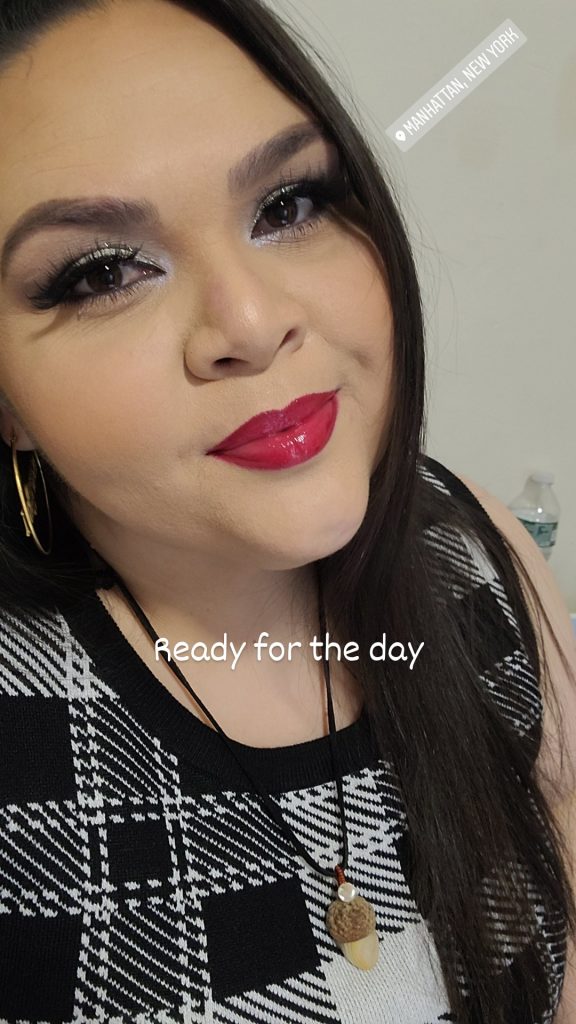First Gen Stories

Jo-Joe Lee
Being a Native American woman makes living a challenging journey. Fortunately, resilience has always been at the core of my life. In 2012, the Indian Child Welfare Act (ICWA) thrust my family into a child welfare battle and legal system nightmare. We had no clue what our rights were or how to advocate for them. Because our Tribal ICWA representative knew absolutely nothing about their role as an advocate, they just concurred with the courts, who did not even acknowledge our plight. The effects were material: my brother, who has never even had a traffic ticket, was arrested after false allegations of child abuse; my mother became very ill with a neurological disease; and I was mentally and emotionally overwhelmed by my mother’s deterioration and my brother’s depression. I did my best to navigate the system for both my mother and brother, but I couldn’t. Ultimately, the case was dismissed after two long years, but it has had a lasting impact on my family. I never want another Native family to experience such injustices as mine did.
For this reason, my goal is to become the kind of Social Worker that Native people need. The court system has been historically ruthless to Indigenous people, dehumanizing us and furthering this country’s founding mission to remove Native children from their homes and families. The problem is generational. My grandmother experienced removal as a victim of the boarding school system, another tool of cultural genocide against Native people. Trust me: Tearing apart families leads to other equally serious problems for everyone, including public health concerns such as substance use. Being able to apply a social work lens when assessing cyclical harms caused by systemically racist systems makes it possible to identify where improvements are needed and possible, and I need that lens to do what I must.
Both my mother’s and grandmother’s resilience motivated me to enroll in community college in 2012, in the aftermath of the ICWA battle. Because I needed to understand the system in order to change it, I majored in Criminal Justice and Sociology. I then transferred to the University of California, Berkeley where I developed skills in rhetoric. Minoring in Native American studies allowed me to learn the basics of Federal Indian law history and how ICWA was developed. I also connected with the campus’s Native community and began to thrive. My mission was to advocate for visibility of Native and Indigenous students, enhancing a sense of academic and interpersonal community support.
My work as a Program Coordinator at the California Indian Environmental Alliance (CIEA) extends this mission. I research laws and policies related to Indigenous land and water policies. Recently I worked on a response to Governor Newsom’s Water Resilience Portfolio. I explained to a room of 250 people how Newsom’s process violated Assembly Bill 52 (AB-52), which states that agencies are to present any environmental impacts to Tribes on proposed projects. The project also violated Executive Order N-15-19, his apology to Native Americans. I joined calls for the immediate halt and discontinuance of the proposed project—and as of right now the project is on hold as a result.
With the recent start and early planning stages of my non-profit organization Urban Reziliency, we will be able to focus on offering social services resources on mental health, domestic violence, substance use, and legal services especially those involving Federal Indian Law. As a 501c3 organization my intentions are to create a space where houseless Indigenous and 2 spirit LGBTQIA+ youth can take advantage of every service they need worry free where they will sleep or find their next meal. As with efforts to address the MMIP crisis, Urban Reziliency has a long road ahead, but will transform what it means to live as an Indigenous person in North America, and help secure possibilities for personal and collective continuation.
Resilience is a gift that can be given. To this end, during my Master’s program, I co-created a student caucus at the Columbia University School of Social Work (CSSW). The caucus supports student parents and caregivers, whose efforts deserve recognition and are important to me, as I provided care for my grandmother in her final years. As the Community Liaison for CSSW, I work to create a community for students from all backgrounds regardless of race, class or gender by building relationships on and off campus. I am currently leading the first ever “Bundles of Joy” drive at CSSW to deliver clothes, toys and non-perishable food items to students who are parents and caregivers, because I understand not being able to provide for your family.
Ultimately, the social services and legal system has long term effects on Indigenous people and their families. Knowing social work is not enough to restructure it. But knowing how to practice social work will expand my perspective. I want to see the system as a tool, and not one of punishment. With support and guidance, I aim to use it to protect and advance Native and Indigenous communities’ rights—and to prevent future mass trauma. I hope more people, like me, are up for the challenge of taking back what is rightfully ours and I hope Columbia School of Social Work will support this mission.
Short stories and photographs have been collected of those who are First Gen students, graduates, staff, and alumni that are now part of the Columbia network. This project was not only to highlight those who are first generation but also to encourage high schoolers and undergraduate students to aim towards the Ivy League dream. If we could do it, so can they!
Share your story by completing this form.
